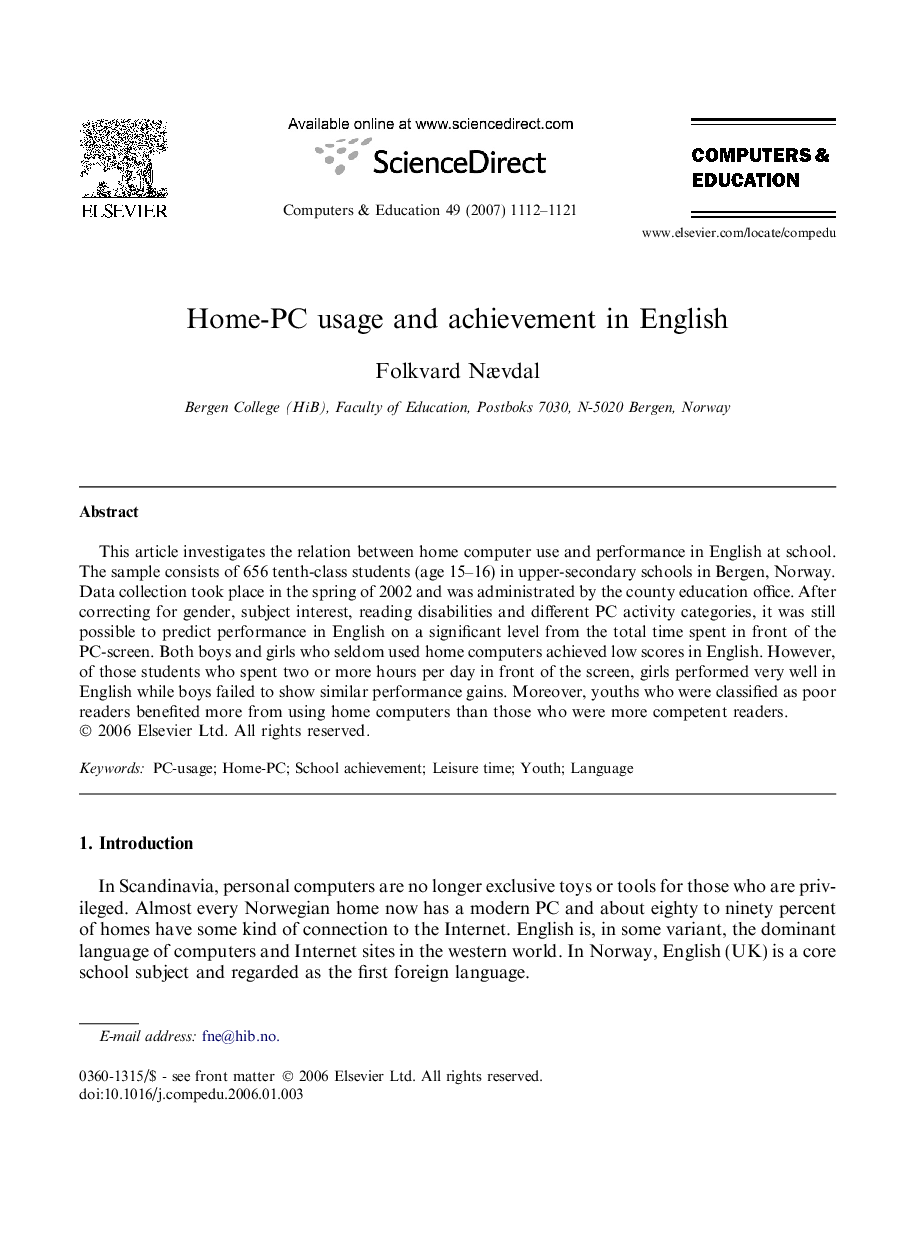| Article ID | Journal | Published Year | Pages | File Type |
|---|---|---|---|---|
| 349818 | Computers & Education | 2007 | 10 Pages |
This article investigates the relation between home computer use and performance in English at school. The sample consists of 656 tenth-class students (age 15–16) in upper-secondary schools in Bergen, Norway. Data collection took place in the spring of 2002 and was administrated by the county education office. After correcting for gender, subject interest, reading disabilities and different PC activity categories, it was still possible to predict performance in English on a significant level from the total time spent in front of the PC-screen. Both boys and girls who seldom used home computers achieved low scores in English. However, of those students who spent two or more hours per day in front of the screen, girls performed very well in English while boys failed to show similar performance gains. Moreover, youths who were classified as poor readers benefited more from using home computers than those who were more competent readers.
